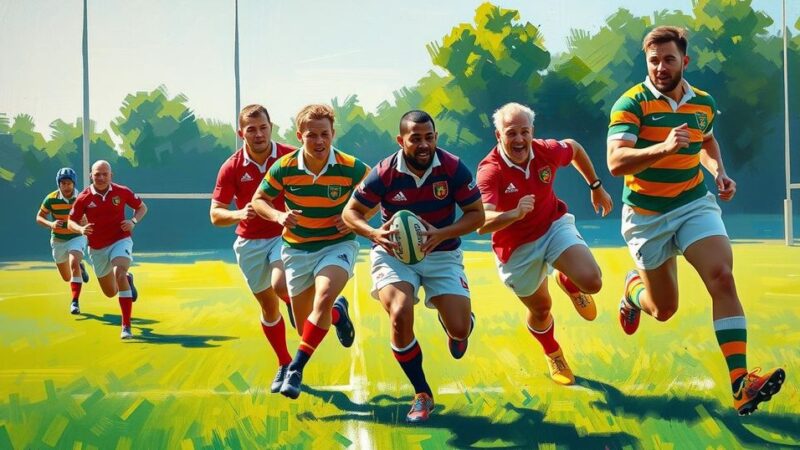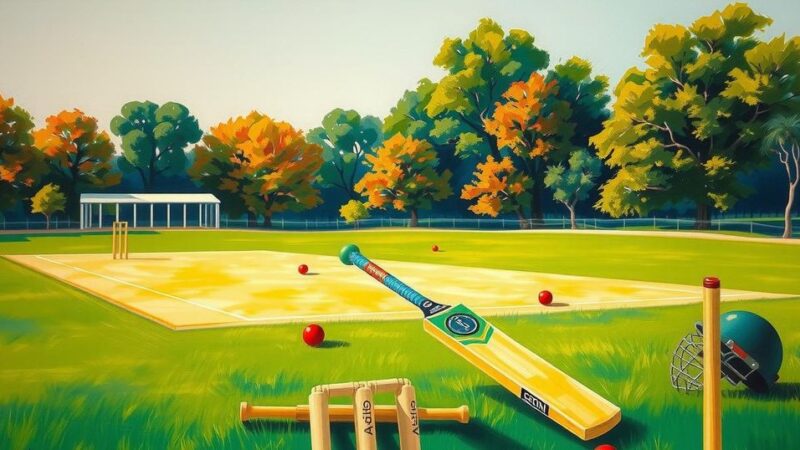Dylan Naidoo won the South African Open, becoming the first player of Indian descent to achieve this victory. His win occurred at the Durban Country Club, where Papaw Sewgolum, another Indian golfer, faced racial discrimination 62 years earlier. Naidoo’s success symbolizes progress in South Africa’s golf, linking Sewgolum’s legacy to current efforts in developing young talent from disadvantaged communities.
Dylan Naidoo made history on Sunday by winning the South African Open, marking the first victory for a player of Indian ancestry in this prestigious tournament. The event took place at the Durban Country Club, a site with a significant connection to the struggles faced by athletes during apartheid. Naidoo’s triumph comes 62 years after Papaw Sewgolum, a South African golfer of Indian descent, won the Natal Open under challenging conditions imposed by racial segregation laws.
Naidoo, aged 27, secured his victory in a playoff against England’s Laurie Canter. He played on the same course where Sewgolum had to endure severe humiliation due to the apartheid regime, including collecting his prize in inclement weather as a result of discriminatory policies restricting access to the clubhouse. Sewgolum’s journey began as a caddy at this iconic course, where he honed his skills with second-hand clubs.
Overcoming numerous obstacles, Sewgolum’s talent caught the attention of a benefactor, which enabled him to compete in Europe and earn a place at The British Open, along with victories in international tournaments like the Dutch Open in 1959. In South Africa, however, he was barred from playing professionally due to oppressive apartheid laws that prohibited any racial integration in sports.
The turning point came in 1963 when Sewgolum was allowed to compete in the Natal Open. Yet, he faced many humiliations, including being compelled to change his clothes in a minivan and share meals with Black caddies, as entry into the clubhouse was strictly reserved for white patrons. His victory at the event was overshadowed by the conditions imposed on him, with the award ceremony taking place outdoors in the rain.
Despite these challenges, Sewgolum became a revered figure within the Indian community in South Africa, which had faced systemic discrimination since the late 1800s. His legacy remains strong, as demonstrated by Naidoo’s accomplishment, who expressed gratitude for the support he received at the course. “This is a special moment for me, it’s a special moment for everybody here in Durban – it’s overwhelming,” said Naidoo, likening the atmosphere to that of a Tiger Woods event.
Naidoo’s victory carries additional significance as he is a product of a development program named after Sewgolum, designed to support young golfers from underprivileged backgrounds as they aspire to enter the professional circuit. His achievement illustrates the progress made since the days of apartheid and continues to inspire hope for future generations of golfers.
Dylan Naidoo’s victory at the South African Open is a landmark achievement for Indian golfers, reflecting a significant transformation in South Africa’s sporting landscape. Naidoo’s triumph resonates not only as a personal accolade but also as a tribute to Papaw Sewgolum, who faced unimaginable barriers during his career. This historic win symbolizes the ongoing progress in addressing racial inequalities in sports. Naidoo’s connection to Sewgolum’s legacy through a development program underscores the importance of opportunities for aspiring athletes from diverse backgrounds.
Original Source: sportstar.thehindu.com






